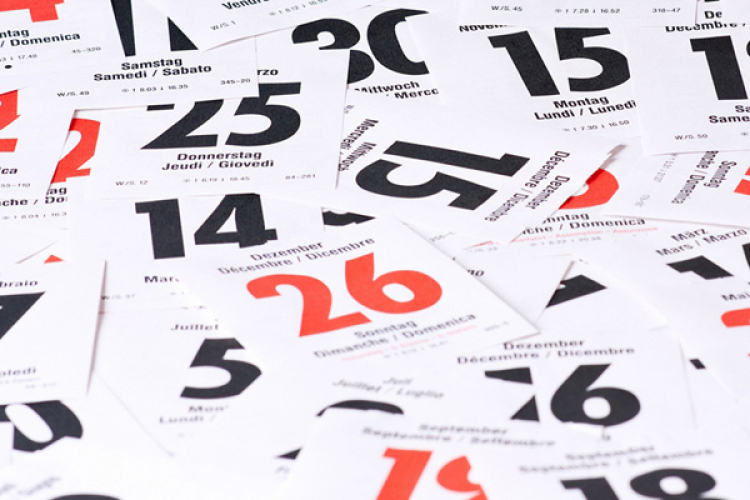
ECO-BUS WEEKLY DIGEST 12 October 18. Most important Economy & Business news by IPN
● MONDAY, October 12
Loan to build animal waste disposal system
An agreement to build a complete system for managing animal waste was signed by the Ministry of Finance and the International Development Association. Under the agreement, an animal waste disposal system will be built to facilitate Moldova’s inclusion in the list of countries that can export animal products to the EU. The agreement on the third additional financing for the Moldova Agricultural Competitiveness Project (MAC-P) envisions financing in the amount of €13.5 million. The implementation period is 2020 - 2024. The interest rate on the loan is now 0.45% a year. A service tax of about 0.75% a year is stipulated.
Inclusion of road tax in excise duties on fuel will burden farmers, economist
The annulment of the road tax, as the draft budgetary-fiscal policy document for 2021 suggests, seems to be a good initiative that is supported by politicians, especially amid the election campaign. But the negative effects of these changes are greater in number than the positive ones, said economic expert Veaceslav Ioniță. According to him, the inclusion of the road tax in the excise duties on oil products will shift the fiscal burden from vehicle owners onto farmers and this is a big problem.Veaceslav Ioniță said the problem of this change is the fact that the road tax that is now fully transferred to the local budget will no longer get to the local public authorities. This problem can be yet solved if the Government and Parliament decide that 20% of the excise, for example, should be redirected, namely 10% to mayor’s offices and another 10% to districts. He noted that a serious problem is related to farmers. The diesel fuel represents 70% of the used oil products and this is primarily consumed by agricultural producers who have tractors, combines, but at practical level they do not use them on the road, but in the fields. Therefore, the burden is shifted from vehicle owners onto farmers.
● TUESDAY, October 13
Veaceslav Kunev: Moldova communicates with developed countries at primitive level
“Currently, Moldova is perceived at the global level as a supplier of raw material and talents, where the economic growth should not exceed 3-4% or it will become a possible competitor. Moldova itself can correct this attitude to it by modifying its place in the world,” said businessman Veaceslav Kunev, president of the Association of IT Companies ATIC. He noted that after the Moldova - EU Association Agreement was signed, no attempt was made to understand the role and place of Moldovan economy. “We didn’t have a government that would have really wanted to work out strategic plans and to implement them consistently. All the strategies were thought up to show that work was done, but these were later put on shelves and forgotten,” stated Veaceslav Kunev. “We continue to have a dialogue with developed countries based on outdated conceptions: here is what we can sell to you; here is what you can buy… This is a primitive approach that definitely does not produce results. With Germany, for example, we should negotiate based on the industrial strategy 4.0 and they will then perceive us as a potential partner that knows what it is all about.”
Galina Șelari: No reform was fully implemented in Moldova
In the Republic of Moldova, no reform had a logical ending. “The reforms are implemented until a particular stage and are then put off and chaos is created as a result,” stated Doctor of Economy Galina Șelari, director of the Center for Strategic Studies and Reforms. She gave a series of examples. “No private pension funds appeared because the privatization program hasn’t been implemented till the end. The education and health sector reforms weren’t successful as, at a certain moment, we started to look at these important areas, through the angle of the costs that we can or cannot cover,” she stated. To change the situation, the country should focus on a long-term development strategy. “We need a common approach that would enable us to formulate the main positions and the communities of experts in such an issue should complement each other,” said Galina Șelari.
● FRIDAY, October 16
Alexei Busuioc: Government will lose bate with LPAs owing to capping of local taxes
The 2021 budgetary-fiscal policy package is disconnected from the macroeconomic context of the country. Moreover, the government intends to diminish the powers of the local public authorities by capping local taxes, considers economic expert Veaceslav Negruța. “There are two other cases when attempts were made, during the past 4-5 years, to amend the legislation and encroach upon local autonomy and the local decentralization processes, also by capping and listing local taxes. When we speak about the relations between the central and local authorities, there should be maximum freedom for the local authorities to take decisions as to what local taxes to apply. The local council should decide. But the list from which the local authorities must choose should be sufficiently long,” quoted the ex-minister of finance Veaceslav Negruța as saying in the program “Shadow Cabinet” on Jurnal TV channel. According to the representative of the Congress of Local Authorities of Moldova (CALM) Alexei Busuioc, the Government’s intentions to impose particular limitations on mayor’s offices will turn against the central public authorities.
Most of frauds with bank cards are committed without physical presence of card
The frauds committed without the physical presence of the card, by using its number, through social engineering methods, represent about 90% of the value of frauds committed by using payment cards issued in Moldova. The holders are manipulated to reveal confidential information, such as the integral number of the card consisting of 16 digits, the security codes CVV/CVC2, the one-time password sent by SMS, etc. The National Bank of Moldova (NBM) says that in international practice they use a relevant indicator that shows the size of frauds with bankcards. This is the ratio of the value of frauds to the value of operations with payment cards. This indicator for the second quarter of this year was 0.015% of the total value of transactions performed with cards issued in Moldova, remaining at a much lower level than the frauds committed in European countries, where they represented 0.041%. Even if the value of such frauds in the second quarter of this year was higher than in the corresponding period last year, the value of frauds committed in the last two quarters is lower than the value recorded at the end of 2017, for example. This diminution is due to the efforts made by banks to strengthen the security measures applied when performing operations with cards.

